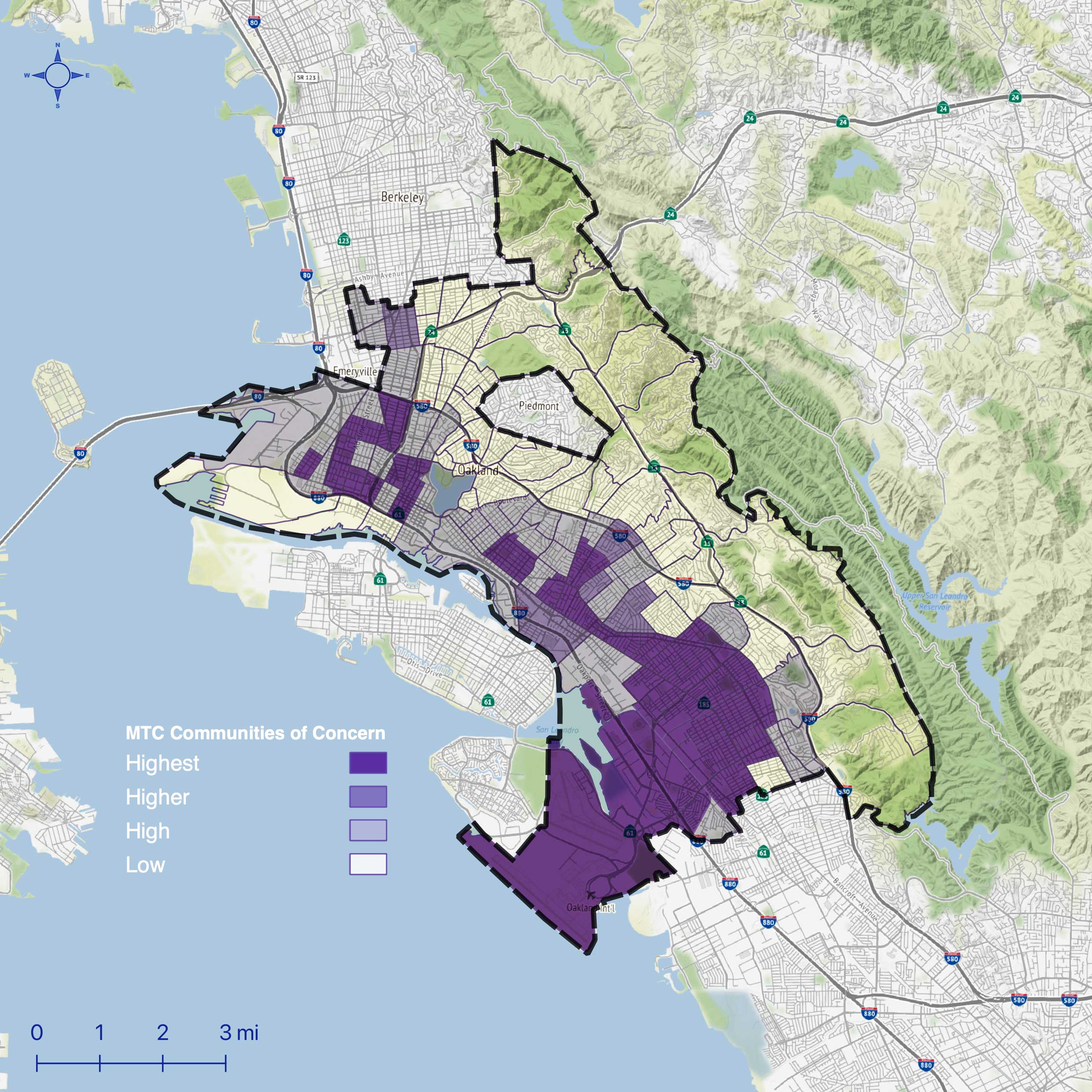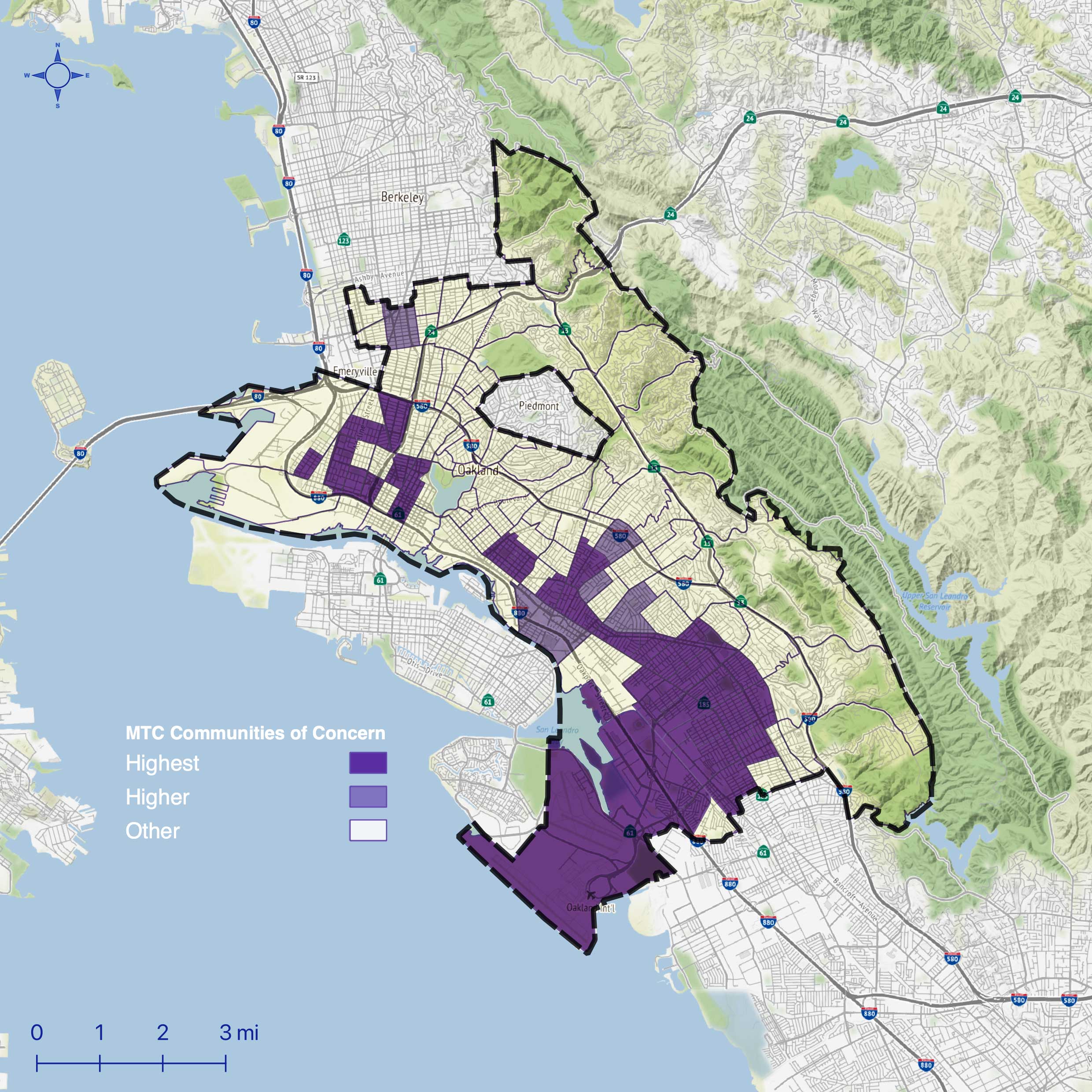An op-ed by Tom Holub, June 15, 2021
Public-private partnerships require compromises. The goal of the public entity (the public interest, ideally) is inherently in tension with the goal of the private entity (profit, explicitly). The agreements made between the two codify a set of compromises each side is willing to make to work together.
These partnerships usually include severely imbalanced power relationships. Multi-billion dollar international conglomerates do not negotiate on an equal basis with individual cities, so cities often end up compromising far too much in the process of getting a contract signed.
Compromises on terms, such as the cost of a service or the division of contract responsibilities, are natural in such negotiations, but I am concerned with compromises on principles.
Oakland’s scooter contracts include provisions for civic principles such as equity and accessibility — principles private entity does not care about, and will not deliver except under contractual obligation; and unless we write real requirements into the contract and enforce them, the principles will be ignored.
There are two ways cities compromise their principles in public-private partnerships: bullshit enforcement, and bullshit requirements.
Enforcement
This came up during May’s presentation at Oakland’s Bicyclist and Pedestrian Advisory Commission (BPAC) on e-scooter operators in Oakland. Oakland announced three new scooter operators in October 2020; two of them (Spin and LINK) had representatives at the meeting.
Kerby Olsen, Oakland’s New Mobility Supervisor, presented about the program on May 25th, focusing on efforts to require scooters to be locked to bike racks. During his presentation, he mentioned that the city is not enforcing the equity provisions of the contract, because the vendors have seen a 75 percent drop in ridership. Both Spin and Link stated they’re not in compliance. Spin said they want to work with communities to find out where to put the scooters, and Link said, basically, that they’re small and can’t afford to. There’s absolutely no evidence for this.
In my neighborhood, Spin didn’t have to ask people to figure out that they should put scooters at Macarthur BART and at Cato’s Ale House. It’s not hard. Scooters would definitely get used at Eastmont Transit Center, or the East Oakland libraries or schools.
Also, this contract was awarded six months into Covid, so everyone already knew about the drop in ridership. If Covid makes you unable to meet the equity provisions, you aren’t capable of fulfilling the contract; and if the city is awarding the contract to vendors incapable of meeting the equity provisions, and if it falls to enforce those provisions, the city is complicit in perpetuating inequity.
One BPAC commissioner who is critical of the scooter program thinks there wasn’t a single scooter available in District 6 (East Oakland) or District 7 (Deep East). That’s close to correct. At the time I checked the apps, there was exactly one scooter in East (at 55th and International) and one in Deep East (at Foothill Square, at the end of the AC Transit 57 bus line). Obviously, those weren’t put there by the vendors.
 There also appear to be no three-wheeled adaptive scooters.
There also appear to be no three-wheeled adaptive scooters.
It is not Oakland’s problem that companies like Spin (a division of Ford Motor Company) do not have a sustainable business model. Even more, it is not our problem that providing equitable and accessible micromobility is less profitable than providing micromobility for abled people in affluent neighborhoods. If we actually believe that equity and accessibility are important principles, it’s on us to enforce the contract requirements all the time, not just when it’s convenient for the vendors.
If you can’t meet the requirements, get out of Oakland.
Meaningless requirements
Unfortunately, the equity and accessibility requirements in most contracts are so weak that we never get to enforce them in the first place, and the e-scooter contract is a perfect example. Here are the contract’s requirements for equitable distribution:
Dockless Scooters should be distributed equitably throughout Oakland. More than 50 percent of Scooters must be deployed in Oakland’s Communities of Concern, as designated by the Metropolitan Transportation Commission.
Fifty percent of scooters in Communities of Concern sounds good until you actually look at MTC’s Communities of Concern map.

For whatever reasons, MTC designates most of Oakland as Communities of Concern, including downtown, Uptown, and Lake Merritt. It would be impossible for a for-profit scooter vendor to fail to fit 50 percent of its scooters into the mapped areas. It’s a deceptive requirement, and everyone involved knows it.
We could make this requirement meaningful by requiring 50 percent of scooters to be located in just MTC’s areas of Higher or Highest Concern. Here’s that map for Oakland:

Vendors wouldn’t want this. It might be less profitable. But it could have a real effect on transportation inequities in Oakland, which the current requirement does not.
The scooter contract also has ridiculous accessibility requirements. Here’s the accessibility clause:
- Operators must provide Adaptive Scooters for persons with disabilities. The total percentage of Adaptive Scooters shall be based on expected need, performance, and usage.
- If the Operator is unable to deploy Adaptive Scooters at the time of permit issuance, a plan must be submitted to the Oakland Department of Transportation within three months of permit issuance detailing a timeline for incorporation of shared Adaptive Scooters.
Both of these are total bull. Section (1) doesn’t define who decides what “expected need, performance, and usage” are, which effectively means the vendor makes the call. The operator can say, “We don’t see much demand for adaptive scooters,” meaning nothing can stop them from ignoring the requirement indefinitely. That is exactly what Bay Area Bike Share is still doing, six years into their contract. Bay Area Bike Share even canceled their makeshift program under which you could borrow a trike to ride around Lake Merritt on Saturdays. That was two years ago.
(The Bay Area Outreach Program for adaptive cycling, BORP, which was paid to operate the Lake Merritt program, runs a great adaptive cycling program at the Berkeley Marina, entirely on grant and donation funding. Don’t tell me that Lyft, market value $18.4 billion, can’t afford it.)
Section (2) specifies a timeline for providing a plan, but not a timeline for providing the service. The vendor can (and will) give us a lot of rubbish about how they’re investigating potential options for adaptive scooters, are working with engineers to develop a prototype, and plan to pilot it as part of their Phase 2 rollout, which they hope to deploy by Q2 2023. If they haven’t gone out of business by then.
This, too, is bullshit and everyone involved knows it. Especially when the vendors know we don’t intend to enforce even the weak requirements we’ve included.
Here’s what a realistic accessibility contract clause might say:
- Operators must provide Adaptive Scooters for persons with disabilities. At least 5 percent of the Operator’s total fleet must meet the section (6)(a) requirements for Adaptive Scooters.
- If the Operator is unable to deploy Adaptive Scooters at the time of permit issuance, a plan must be submitted to the Oakland Department of Transportation within three months of permit issuance detailing a timeline of no longer than one year for incorporation of shared Adaptive Scooters.
It’s totally doable. So why aren’t we doing it?
Principles
OakDOT’s Shared Mobility Team has drafted a good set of shared mobility principles. Here are two of them:
Racial equity
“The communities of East Oakland, Fruitvale, and West Oakland, where high numbers of Latino, Black, and low-income residents live, are underserved by transportation options, including shared mobility. Shared mobility services should be designed in a way that maximizes benefits and minimizes burdens while giving communities opportunities to have decision-making authority. Shared mobility services should include these communities and their common destinations in their service area, identify and reduce barriers to access, ensure that their service does not allow or perpetuate discrimination based on race, and provides health and economic benefits.”
Equitable access to services
“Shared mobility services should provide greater physical, cultural, financial, and digital access to transportation options for low-income communities of color and persons with disabilities. Shared mobility should be designed to link these populations to jobs, schools, housing, health care facilities, grocery stores, mass transit, and other essential services.”
Conclusion
If you’re going to compromise these principles when writing a contract, and then compromise them again when enforcing it, you undermine their purposes. You essentially say, “Yes, we kinda think equity and accessibility are important, but they’re not as important as helping billion-dollar corporations make money in Oakland.”
The challenge to everyone who shares these principles is to enact them in every aspect of our jobs. Whether you’re a department head, an individual contributor, or a contractor, you can insist on equity and inclusion in the work you do. We enter into contracts that require the work of dozens of mostly well-meaning individuals; the bullshit will stop if enough of us refuse to compromise.
 Tom Holub has been Northern Section’s Technology Manager since 2018. He is the founder and principal of Totally Doable Consulting, a strategic and technology firm serving nonprofits and the public sector. From 2000 to 2013, Holub was the Director of Computing for the College of Letters & Science, Dean’s Office, at UC Berkeley. He holds a B.A. in urban studies from UC Berkeley and lives in Oakland. Holub blogs on social issues related to urban cycling at https://bike-lab.org.
Tom Holub has been Northern Section’s Technology Manager since 2018. He is the founder and principal of Totally Doable Consulting, a strategic and technology firm serving nonprofits and the public sector. From 2000 to 2013, Holub was the Director of Computing for the College of Letters & Science, Dean’s Office, at UC Berkeley. He holds a B.A. in urban studies from UC Berkeley and lives in Oakland. Holub blogs on social issues related to urban cycling at https://bike-lab.org.
